Gift of life
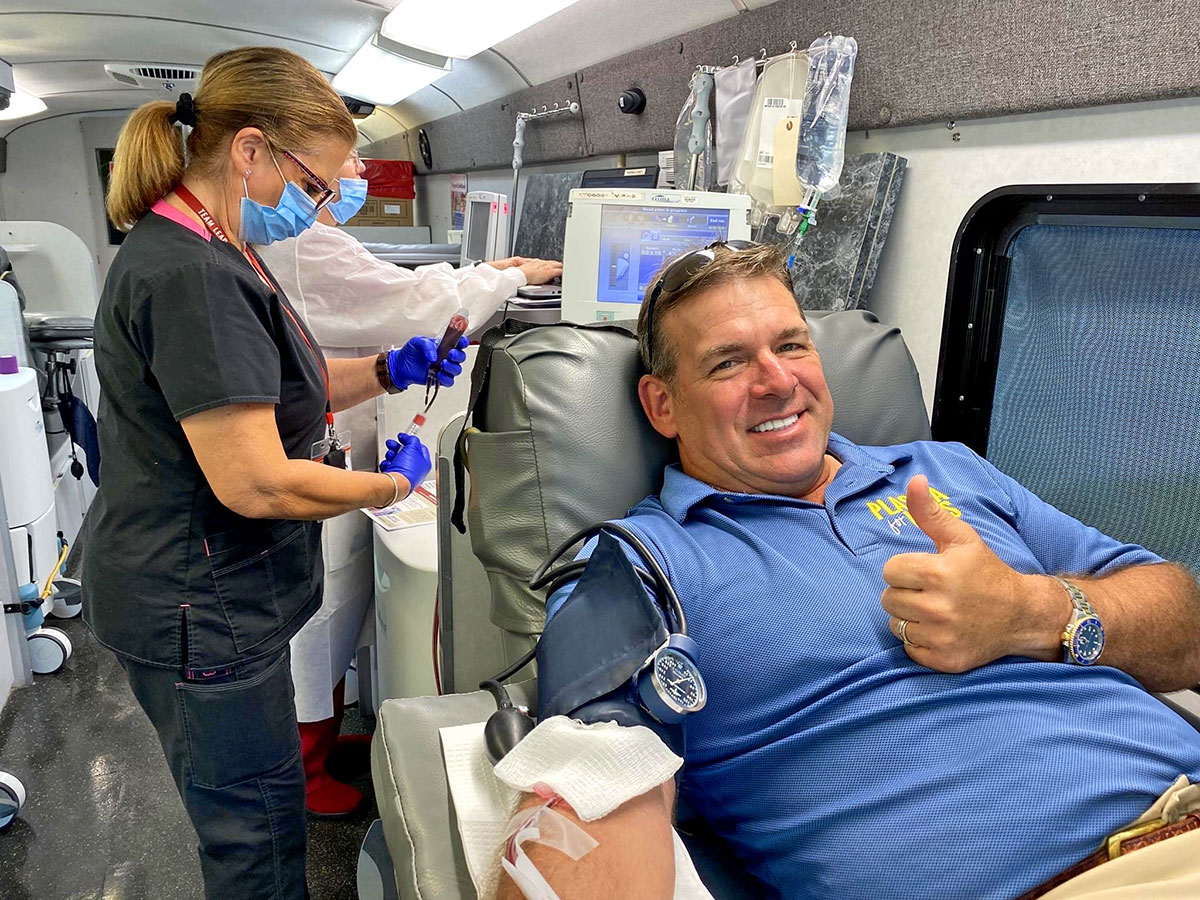
Facebook posting leads to successful coronavirus treatment
BY DONNA CRARY
When James Crocker, founder and president of Hog Technologies, attended the WWETT Trade Show and the Conservative Political Action Conference in late February, the economy was strong and 2020 looked promising. Then the winds of optimism seemed to change direction.
He came home and attended a funeral for his nephew. By March 8, Crocker had developed symptoms that he thought indicated the flu — a bad headache, 102 degree fever, exhaustion, body aches, heavy nausea and issues with his lower tract. The possibility of having the coronavirus seemed out of the question.
“At that time, there were very, very few cases in America, so it was the furthest thing from my mind,” he says.
Then one day he felt better and decided to play a round of golf to get his mind off of work and relax.
“I remember ordering a hot dog at the ninth hole and trying to eat the hot dog,” he says. “I couldn’t taste anything — no taste, no smell. I love hot dogs, but I threw most of it away.”
Days passed and he still had not recovered. Crocker’s wife, Sandee Jo, had a sinking suspicion that he had COVID-19, so she insisted her husband get tested for the virus. He went to the hospital and was initially diagnosed with pneumonia.
“I had no breathing problems, just a slight dry cough,” he recalls. “They X-rayed my lungs and showed me spots on my lungs. Then that’s when I thought, You know what? I bet I have this bug.”
In fact, additional testing later determined that he did have it.
Crocker was one of the lucky ones. The Stuart resident spent the night in the hospital and then quarantined at home, where he fully recovered. By the time he had completed his quarantine, his mind began to focus on the country’s economic crisis. He read news articles and then turned to Facebook to get a sense of the business fallout. That’s when he saw a post from a friend, attorney John Stemberger, that prompted him to text Stemberger, asking him to call.
Stemberger texted him back, “I can’t call you. I’m looking for a needle in a haystack. I have a friend who’s about to die from the coronavirus. Unless he gets a plasma donor — it’s our last hope.’”
And without hesitation, Crocker responded, “I am your needle in a haystack.”
COMBATING COVID
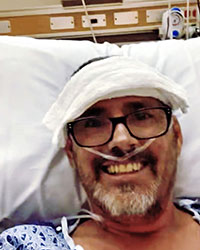
Stemberger’s friend was Kevin Rathel, 52, who was in the ICU at Orlando Regional Hospital. In late March, he developed what appeared to be flu-like symptoms. He had no pre-existing conditions. The sickness ran through Rathel’s family, too, impacting his wife and three children, who had less severe symptoms. He had no fever or cough, felt exhausted, and had lost his appetite. He began to experience shortness of breath after several days, and eventually went to the emergency room where he was diagnosed with pneumonia. Later on, he tested positive for COVID-19.
“Less than 48 hours later after he was admitted, he was put on a ventilator in a medically-induced coma — it was that fast,” his wife, Stacie Rathel, says. “We didn’t know anyone else who had it. It was surreal. He just kept getting worse and it was a nosedive off of a cliff.”
Kevin Rathel was not responding to the standard protocol of medications used to treat COVID-19 patients. So, his wife suggested that the doctors use convalescent plasma therapy, a nonconventional treatment she had learned about just a month before.
The idea behind the therapy is to infuse a patient with blood plasma, rich in antibodies, from a person who has already recovered from the coronavirus. The plasma infusion bolsters the immune system in hopes that the sick patient recovers. With no other options available, the hospital eventually agreed to give it a try.
“About the end of February we read a story about doctors in New York who were successfully using plasma to treat COVID patients,” Stacie Rathel says. “My husband and I had a three to four minute conversation about it saying it was smart thinking on the part of the doctors to resurrect this treatment. I like people who are willing to think outside of the box. Fast forward to we’re in the middle of this. We personally think it was sort of a God thing that put it on our radar to begin with. I wouldn’t have known to even consider that as an option.”
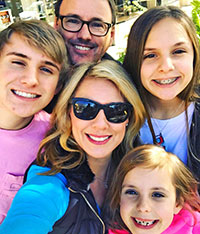
It was during this time that a friend of the Rathels posted on Facebook a call to pray for Kevin’s dire circumstances and to help them find a plasma donor. She posted a picture of the couple, which created a groundswell of support from followers everywhere. Stemberger learned of Kevin Rathel’s declining health on the social platform which then connected him to James Crocker.
“From the moment that I saw John’s text, I felt an inner sense that God was in this. I felt it was a kind of divine appointment,” Crocker explains.
Without thinking twice, Crocker and his wife drove to Orlando within hours after reading Stemberger’s text, to meet the Rathel family.
“James shows up at our house, and we hug each other. We had never met this man before, but it felt so natural,” Stacie Rathel recalls. “Even after he left that night, my kids said, ‘Mom, it was like getting a visit from your uncle.’ ”
To qualify for donating convalescent plasma, Crocker needed to have a compatible blood type, be fully recovered from COVID-19 and test negative for the virus. He met the first two requirements, and his next big challenge would be to produce a negative test result on the following day.
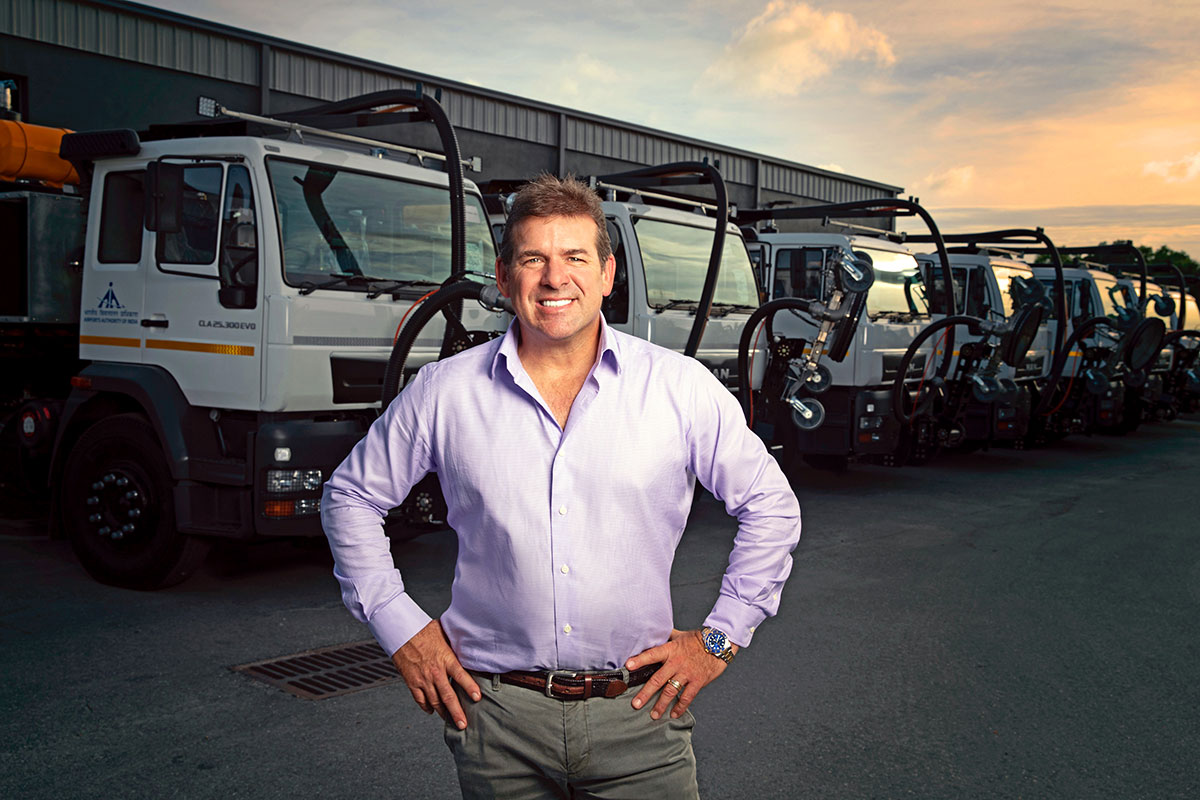
ON A MISSION
Finding a rapid COVID-19 test in early April was almost next to impossible. A man on a mission, Crocker went to numerous places in Orlando to search for such a test. He found the testing sites, but the results would not be available for at least a week or more — precious time that Kevin Rathel didn’t have.
“Neither James nor I are red tape kind of people,” Stacie Rathel says. “So, you can imagine how incredibly frustrating this is. We got the approval and I have a donor. Why is this that hard? I’m like at this point, ‘People, time is ticking — I’m hearing this clock in the back of my head.’ It’s like James and I are the only ones who are hearing that clock. Everyone else is moving in slow motion.”
After spending an entire day hunting for a rapid test and coming up empty handed, Crocker was feeling discouraged and almost defeated.
“God knew exactly the man that I needed to partner with, especially on that day,” Stacie Rathel says. “Around 3 or 4 in the afternoon, James said to me, ‘I feel that it doesn’t look good.’ I said to him, ‘Please, don’t give up!’ And he responded, ‘No way, no how, not ever!’ He’s just as bulldoggish and persistent as I am. So, the two of us are immediately speaking the same language.”
It was not until later that evening as Crocker and Stacie Rathel were still searching for a solution that she received an unexpected call from Dr. George Ralls, the medical chief quality officer of Orlando Regional Health.
“Dr. Ralls asks, ‘How far is the donor?’ ” Crocker recalls the conversation. “Stacie said, ‘Three feet away from me.’ He said, ‘Send him over,’ and Dr. Ralls administered that test himself and had the results 30 minutes later — negative. The next morning, I went to OneBlood and donated plasma.
It took them about 45 minutes. They had a courier waiting to rush it to St. Petersburg to the OneBlood Lab.”
Around midnight on April 8, Kevin Rathel was the first COVID-19 patient in the Southeast to receive a plasma infusion. It took several days for the treatment to take effect.
On Easter morning, April 12, Kevin Rathel was taken out of a coma and his doctor woke him up. He was still on a ventilator. Rathel’s physician, Dr. Mai Vo, had a surprise for Stacie Rathel. She called her on FaceTime and told her to talk to her husband.
“There was this moment when me and the kids started talking to him and he had a tear rolling down his cheek,” she recalls. “Dr. Vo said, ‘He hears you — he’s crying. He heard you.’ He can’t communicate with us, except for a tear. Oh, my God! What an amazing moment that was!”
“I remember hearing Stacie’s voice and the kids’ voices, and then of course, tears just came out,” Kevin Rathel remembers. “I couldn’t talk because I had that thing in my throat. It was a miracle.”
His condition turned around from that day forward. He was released from the hospital the next week and is recovering at home today. He says he feels much better, almost 75 percent back, and is grateful to be alive.
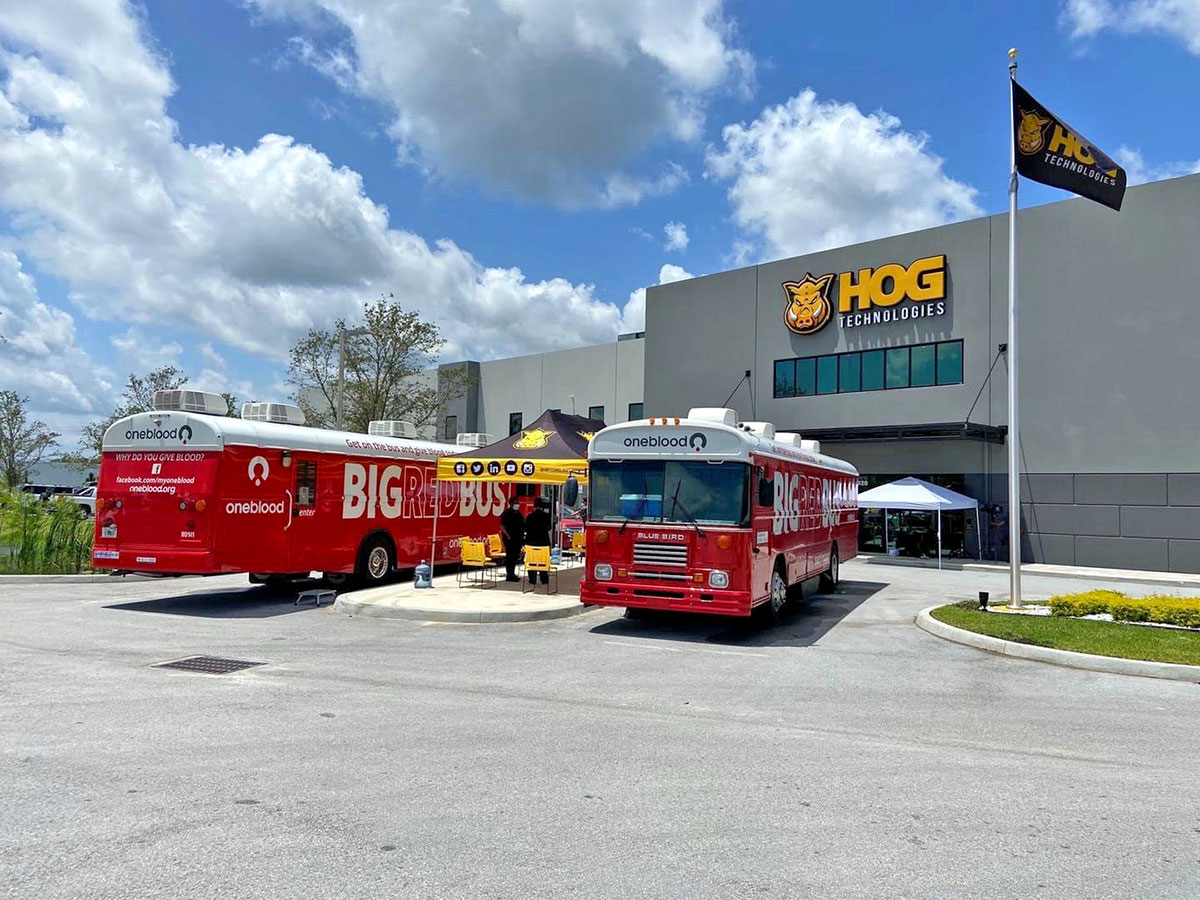
SAVING OTHERS
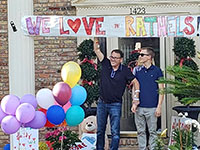
Kevin Rathel’s battle with COVID-19 inspired Crocker to establish Plasmaforlives.com, an online website that connects plasma donors with COVID-19 patients.
“My vision for the website is to create a place to tell compelling stories of need,” Crocker explains. “I felt like there could exist a more centralized place where folks could share their urgent needs for plasma. The other thing I wanted to do was to celebrate people who are donating. And then, a central place where there is a lot of information — news stories, events, things that are relevant in the study of plasma — and whether it’s successful or not.”
Crocker believes more plasma donors could be found if antibody testing were more widely available. He purchased several hundred rapid antibody test kits made by Abbott and then opened the lobby at his business in Stuart to provide testing in his own community.
“I hired Treasure Coast Urgent Care and we ended up testing 700 locals and identified 35 who had the virus,” he says. “Later we held our first plasma drive, and we had 27 donors. OneBlood told us that it was the largest convalescent plasma donation drive in the country, at that time.”
Kevin Rathel’s complete turnaround motivates Crocker to encourage COVID-19 survivors to not be complacent and take action by donating plasma.
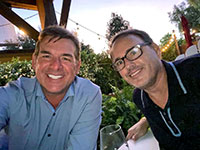
“How often would you have the opportunity to save a human life?” he asks. “It’s a rare privilege, and if you have the antibodies for COVID-19, you shouldn’t miss the amazing opportunity to impact somebody’s life in this very personal, very real way. OneBlood is now testing all blood donations for antibodies, as well. So, if you’re curious as to whether you had the virus or not, donate blood and you’ll find out in just a few days.”
Kevin Rathel is also spreading the gospel of donating convalescent plasma. He says he would not be alive without Crocker’s donation of lifeblood and he urges others to do the same.
“Save a life and donate plasma, if you can — and give it as many times as you can,” he says. “Dr. Ralls told us right after I had left the hospital that they had given plasma to 10 patients who needed it right away. That’s people in the ICU, and before, you had a 15% to 20% chance of coming out of the ICU. He said out of the 10 they had given it to, nine came out with great results. It’s the most cost effective, the cleanest and the easiest solution for right now. So, I would say donate plasma.”
Today, Kevin Rathel and Crocker have established a newfound friendship. Crocker made sure to attend his homecoming when he was released from the hospital. Since that first meeting, the two keep in touch regularly and have formed a lifetime friendship.
“He and I hit it off right away,” Kevin Rathel says. “He’s a lot like I am. We fist bumped. We now talk to each other on a weekly basis, so it’s really exciting. He’s become more than just a close friend. We’re blood brothers.”
